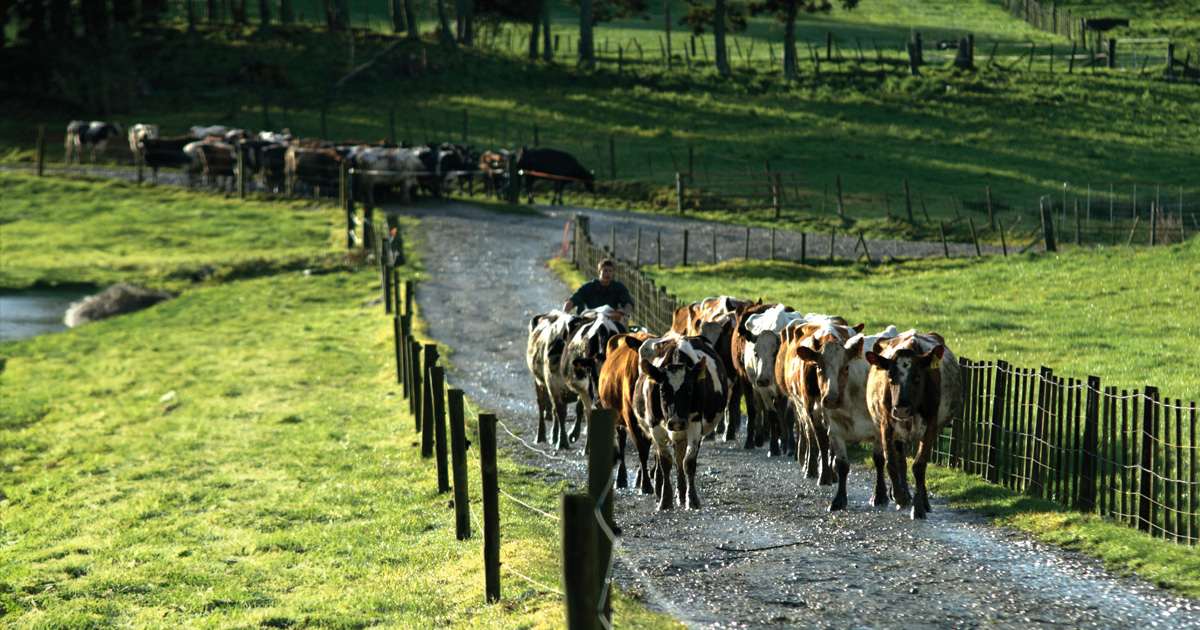-
-
-
-
-
-
-
-
-
Managing stock around waterways in Otago
-
-
-
-
-
-
-
-
-
-
-
-
Managing stock around our rivers and streams limits contaminants from dung and urine entering the water.

Managing stock around our waterways also limits habitat loss from damage to stream banks, river beds and protects habitat from being smothered by sediment.
All stock need to be controlled around waterways
- There must not be any feeding out of stock in the beds of waterways
- Stock must not cause slumping of banks, pugging or erosion
- Stock must not be a change in the color or clarity of the waterway
- Stock must not damage fauna or New Zealand native flora in any Regionally Significant Wetlands
|
Certain stock requiring to be excluded from wide rivers and the distance of the exclusion zone |
Slope |
Application Date |
|---|---|---|
|
Dairy cattle and Pigs require a 3m exclusion from the banks of wide rivers |
All Slopes |
1 July 2023 |
|
All cattle and deer that are being intensively grazed* require a 3m exclusion from the banks of wide rivers |
All Slopes |
1 July 2023 |
|
Dairy support requires a 3m exclusion from the banks of wide rivers |
All Slopes |
1 July 2025 |
|
All cattle, deer and pigs required to be excluded from natural wetlands |
All Slopes |
1 July 2025 |
|
Dairy support requires a 3m exclusion from the banks of wide rivers |
All Slopes |
1 July 2025 |
If the intensive grazing is between 1 May and 30 September each year the Intensive Winter Grazing rules may be triggered. Intensive Winter Grazing requires a 5m exclusion zone and may require resource consent. Please refer to the Intensive Winter Grazing rules for more information.
Definitions
(Please refer the Stock Exclusion Regulations for full definitions.)
Low slope land means land identified as low slope land
Wide River means a river (as defined in the Act) with a bed that is wider than 1 metre anywhere in a land parcel
Intensive Grazing means break feeding or grazing on annual forage crops or grazing on pasture that has been irrigated with water in the previous 12 months
Dairy cattle means cattle that are farmed for producing milk and includes any bull on the farm whose purpose is mating with those cattle and unweaned calves of those cattle but does not include dairy support cattle
Dairy support cattle means cattle that are farmed for producing milk but are not being milked (for example, because they are heifers or have been dried off) and are grazed on land that is not grazed by dairy cattle
Natural wetland means a wetland that is not, in the coastal marine area, deliberately constructed, geothermal. Natural wetland also excludes areas of pasture used for grazing and has more than 50% exotic pasture species and is not the habitat of threatened species.
Requirements for stock crossing over waterways: All pigs and cattle must cross a wide river using a dedicated bridge or culvert, unless they are supervised and actively driven across. Stock may only be driven across rivers no more than 2 times a month. If you are considering installing new crossings, please contact Council at consent.enquiries@orc.govt.nz, or calling 0800 474 082 for more information.
Existing fencing: Permanent fences may stay in place (and don’t have to be moved 3m from the banks of wide rivers) if they were installed prior to 3 September 2020. Any upgrades to the fencing will require to meet the exclusion distance of 3m.
Permanent fencing is defined as either a post and batten fence or an electric fence, with driven or dug fence posts, and at least 2 electrified wires. Stock may also be excluded by terrain or hedges.
Under the Stock Exclusion Regulations, dairy cattle must be excluded from a river wider than 1 meter, except when crossing. If there is no bridge or culvert to use, they can cross the wide river as long as they are supervised and actively driven across the wide river, and do not cross the wide river more than twice in any month.
No.
Sheep are not excluded from waterways however they must not be fed out in waterways, cause pugging slumping or erosion and must not damage fauna or native flora.
Not with out a resource consent. Please contact Council at public.enquiries@orc.govt.nz, or calling 0800 474 082 for more information.
From top of bank to top of bank. The RMA defines a bed as the space of land which the water of the river covers at it fullest flow with out overtopping its banks. If the river is more than one meter wide at any part of your property, then the entire river will need to have the stock excluded.
Council will work with landowners to help meet the rules. However under Section 1A of the regulations if you are unable to meet the requirements you may be subject to enforcement action. Each occasion of non-compliance with the regulations ins an offence and carries and infringement of $100 per animal up to $2000 per person ($4000 for corporate bodies or trusts).
